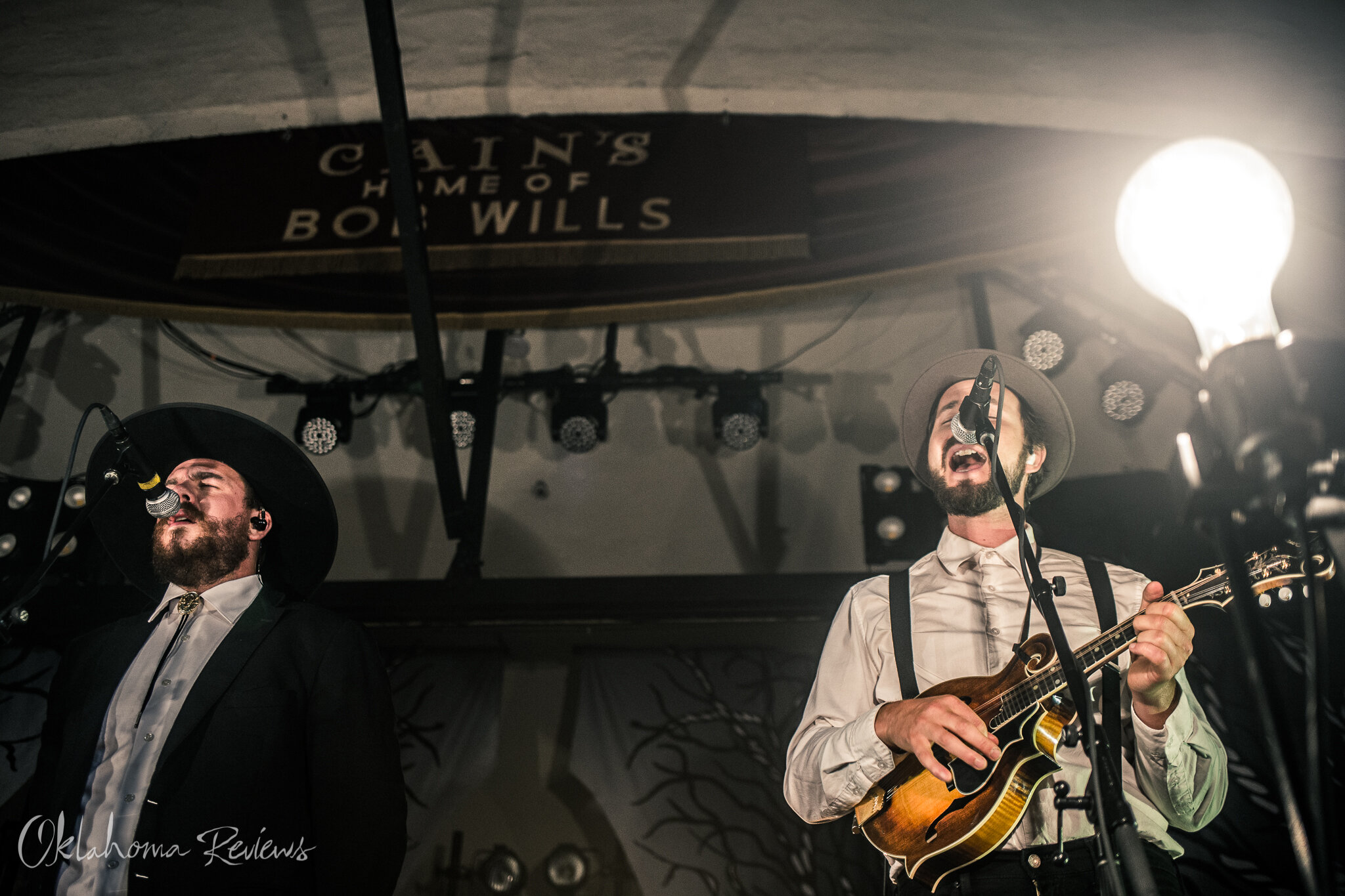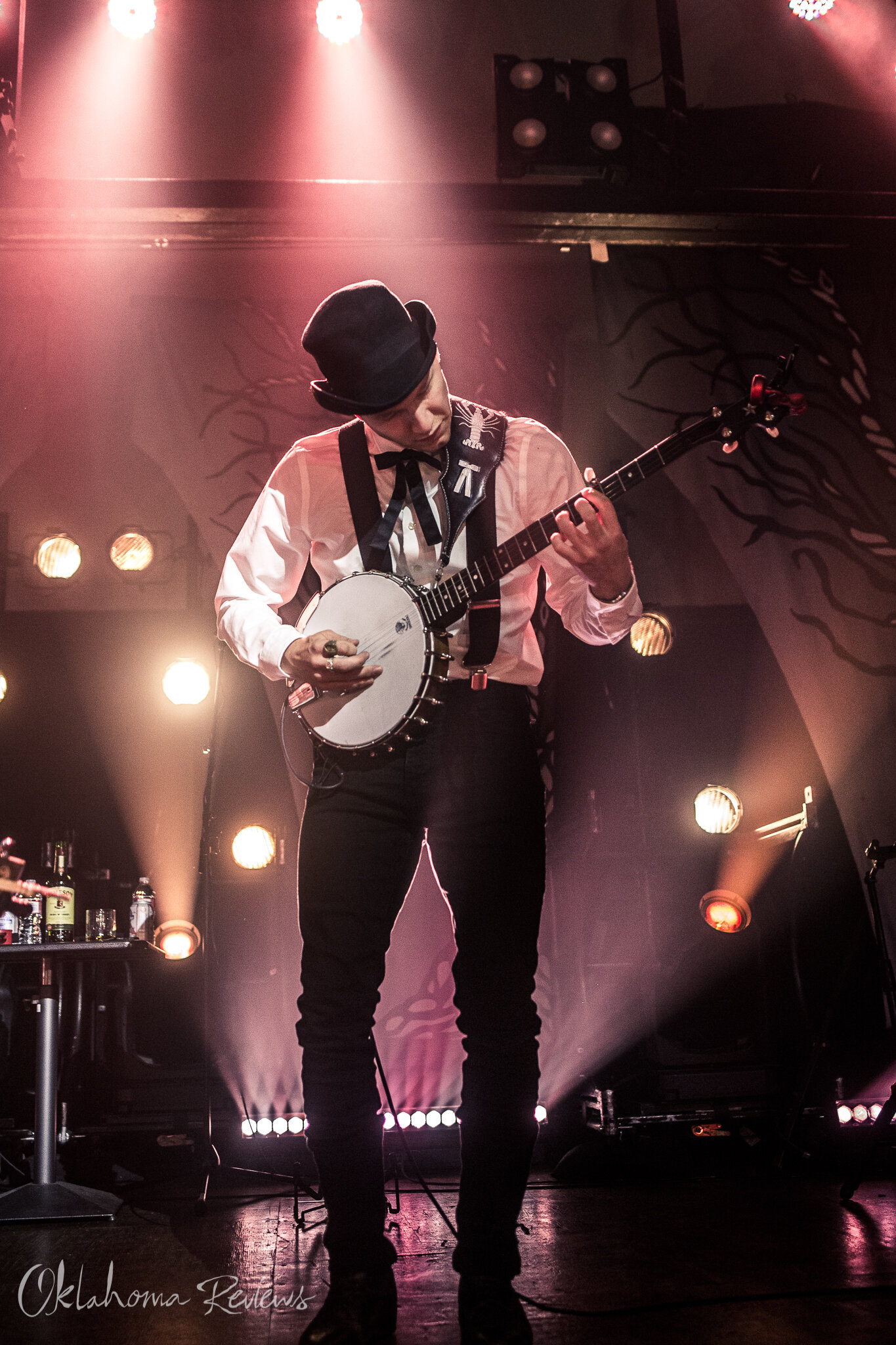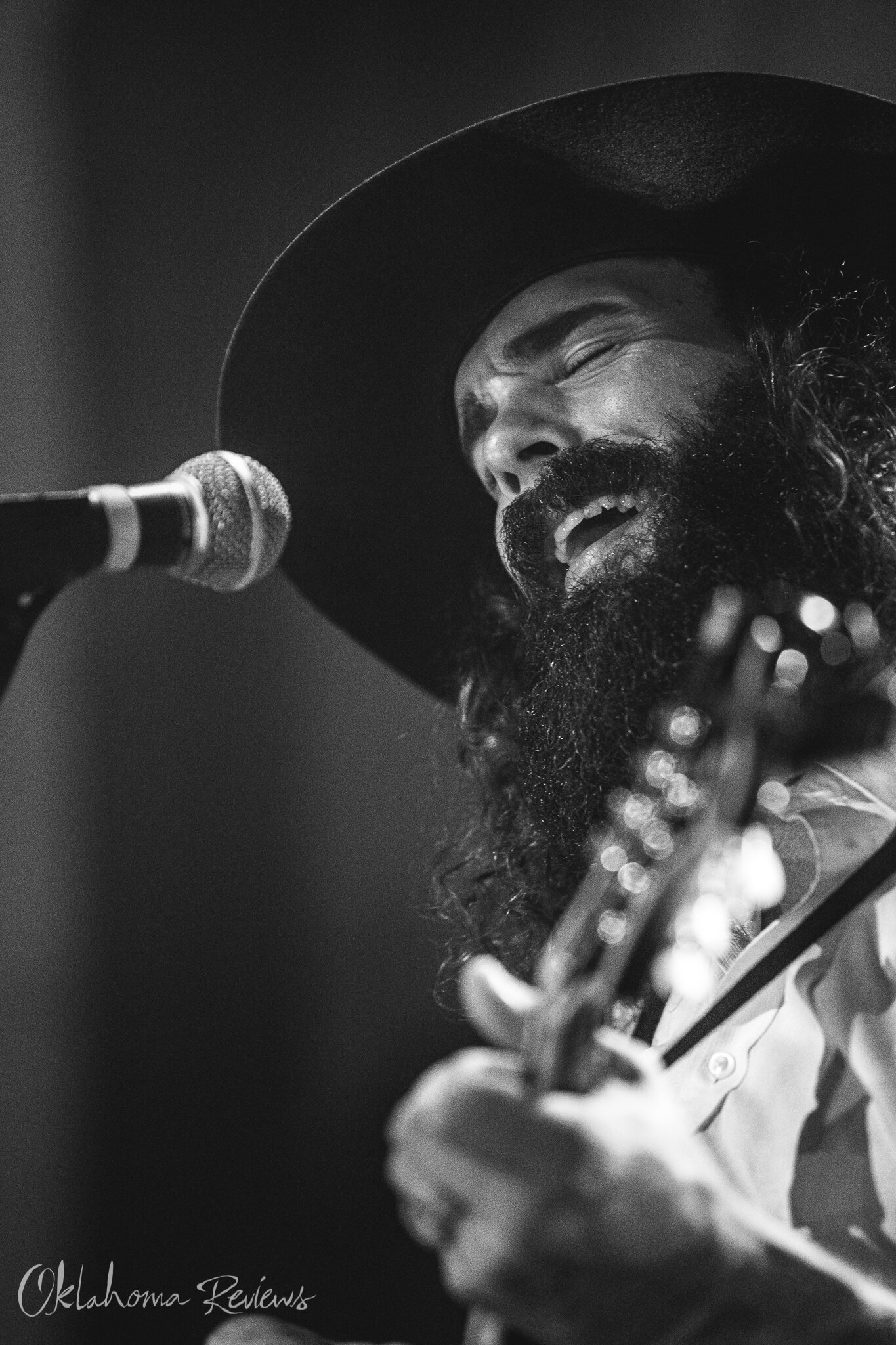The Dead South: Sugar & Joy
I was born and raised in the coalfields of Appalachia and even though bluegrass/folk music has always had strong roots there, with the exception of a county fair or church revival every now and again, I didn’t grow up listening to any of it. Don’t get me wrong, because of my love for “all things back home,” I’ve always felt a strong connection to it all, but for the most part, while growing up, it was punk and rock n’ roll peppered with the occasional country cross-over hit for me. At least one of those three genres don’t particularly meld well with the others, but I’ll be damned if The Dead South haven’t managed to pull together all these types of music (and then some) into a sound that’s completely distinctive and entirely their own; vocals suggestive of 90’s alt-grunge, instrumentals almost completely familiar to bluegrass. There are tempos that will provoke a whole lot of foot stomping and maybe some casual head banging, and lyrics that satirize, but pay tribute to the stories told in the songs of America’s bygone troubadours.
The Dead South | Cain’s Ballroom
A four-piece string band hailing from Regina, Saskatchewan (what the hell is going on up there that we’ve been blessed with so many great acts from this region as of late?), the fellas of The Dead South didn’t grow up playing bluegrass, and, between them all, share a plethora of musical influences and preferences. It’s these many different influences/preferences that make their new album, Sugar & Joy, set to release October 11, 2019. The album is a collection of unforgettable stand out songs and an extraordinary composition on materialism, stories of life, bullying, and nearly everything in between. Heavy on instrumentation, Sugar & Joy relies solidly on the groups recognizably merciless picking of their acoustic instruments to accompany the varying vocals of different band members. (This sometimes leaving it up for consideration as to whether it’s the instrumentation backing the vocals or the vocals providing a backdrop to the instruments).
The album opens to a focused, up-beat, yet stirring banjo intro that’s quickly complemented by the remaining strings. Aptly named “Act of Approach,” it immediately leads into the first single released from Sugar & Joy, “Diamond Ring”- a testament to the despairing lengths love can lead to, the materialistic expectations society has equated with love, and the unscrupulous means as to which some folks are willing to go in their chase to meet said expectations. The single tells a tale of a meager gentleman whose gal expects a diamond ring and as the man hasn’t the means to provide one, decides to rob William of his gold. In exquisite bluegrass fashion, this song takes the story of a tragically sad situation and places it atop snappy rhythms, but the band’s knack for pairing the song’s high energy pace with deep-voiced vocals which evokes the whole sad situation that turns the song to the uniqueness of The Dead South.
Four songs in we’re introduced to the somberness that has been known to plague life in the coal fields. “Black Lung” tells the story of miners who work hard, live even harder, and too often never really experience any reprieve from the tough life they live. Written by JC Ortiz, the group leads us into it with the somber pulse of a cello beat while the banjo achingly calls out the song’s desperation, and the mandolin punctuates its cries. The steadiness of the guitar cadence providing backdrop brings it all together. Although the lyrics “Basically, we are all alone in the center of a pickaxe mine/ Black Lung stings as the pickaxe swings/ As the void of the mine closes in” … “We saved away to escape some place/ On a local miner’s minor pay/ We saved so long the fall came and gone/ At least 27 times,” are used to describe the struggles of a miner, one could also argue these lyrics similarly ring true to the plight of so many working-class families.
And then we’re brought to the song the album’s title is pulled from, “Fat Little Killer Boy.” Its peculiar choice of lyrics speaks to the tragedies that abuse and bullying can bring to a person’s life and those who encounter them. Again, The Dead South chooses to complement this wretched tale with fast-paced and joyful instrumentals but we learn shortly into the song that it’s anything but an account of joy. With a dad who abused him and others who teased him, “Fat Little Killer Boy” becomes gluttonous for more than just food. The band calls this the “weirdest song on the record” and I have to agree, but it fits perfectly into the group’s reputation of performing songs that grab the imaginatopm of their listeners and tackle tough subjects. The outro to the song, “Fat Little Killer Boy/Eggs, Sugar and Joy,” leaves so many things up to one’s imagination!
Photo Courtesy of Morgan Coates
With Sugar & Joy, The Dead South entangle all of this collectively into pieces of music that are not entirely unlike bluegrass and are also abundant with the spirit of everything I loved about the music I spent my childhood singing along to. Their ability to marry it all together not only places them at the top of my playlist, but also has awakened my interest in the bluegrass I’ve not paid close enough attention to. Even though their genre is still a topic for vigorous debate, it’s exactly this appeal that has created new bluegrass fans, brought droves of fans to their shows, and has earned them a spot near the top of Billboard’s US Bluegrass Charts. Sugar & Joy does not disappoint and is sure to earn the gentlemen heaps of new fans.
All songs written by The Dead South except "Black Lung" written by JC Ortiz, and "Heaven In A Wheelbarrow" written by Keiran Semple.
Produced by Jimmy Nutt and The Dead South
Mixed by Jimmy Nutt
Recorded at The Nutthouse, Sheffield, Alabama.
Published by Peer Music
Mastered by Joao Carvalho











